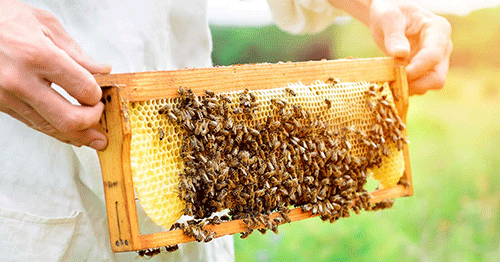Bee populations are rapidly declining and humanity must prevent this for their own existence. This is the view of the Women for Bees organisation, in light of the marking of World Bee Day on 20 May.
The day presents an opportunity to promote bee awareness and to adopt actions that will sustainably protect, increase and diversify pollinator populations.
The role of bees in an ecosystem has been recognised by the UN General Assembly and a day was dedicated to observe this critical role.
Since 2018, World Bee Day has been celebrated worldwide, with an overarching purpose to highlight the role bees play in our ecosystems, including various threats they face.
The Women for Bees, which is a member and affiliated to the Beekeeping Association of Namibia, was established in 2022 with the vision of developing apicultural programmes for women empowerment, youth engagement and creating environments that secure the sustainability of apicultural projects.
Apiculture is defined as a multitude of activities that involve keeping bees.
The focus area of the Women for Bees initiative includes woman empowerment, conservation, education and practical training amongst others.
Various researches indicate that about 75% of the world’s food crops such as seeds, nuts, fruit and vegetables depend on pollinators including bees. Some fruit like apples, blueberries, almonds and strawberries are 90% dependent on bee pollination.
“This shows that bees contribute directly and are big players to our food security. We all need bees for our survival and individuals, communities and governmental institutions are encouraged to join the world in saving bees.
“These actions may range from individuals planting diverse bee attracting flowers, and indigenous trees to farmers using bee-safe pesticides to governments formulating policies that protect the local bees,” the Women for Bees orgnanisation said in a media statement yesterday.
Apart from honey, there are numerous job-creating opportunities in beekeeping. Beekeepers can provide pollination services to farmers and also train others in beekeeping, construction of bee boxes, bee suits, bee hats, and tools box brushes.
Bee products such as wax can be used for wax paper, candles and in the carpentry industry. All kinds of products are made from honey, propolis and wax from soap to several beauty products. Recent medicinal research in apitherapy is investigating bee venom in treating arthritis.
In Namibia, beekeeping is a rapidly growing agri-industry, with the potential to create job opportunities for the communities, improve health and contribute to better environmental practices for food security. Namibia is not lagging and joining the world by also participating in World Bee Day 2022.
The Beekeeping Association of Namibia together with the affiliated Women for Bees Namibia has organised various events in celebration of this day. Schools are invited to participate in bee-focused art competitions and the business communities are also encouraged to commit to saving bees and the environment.


